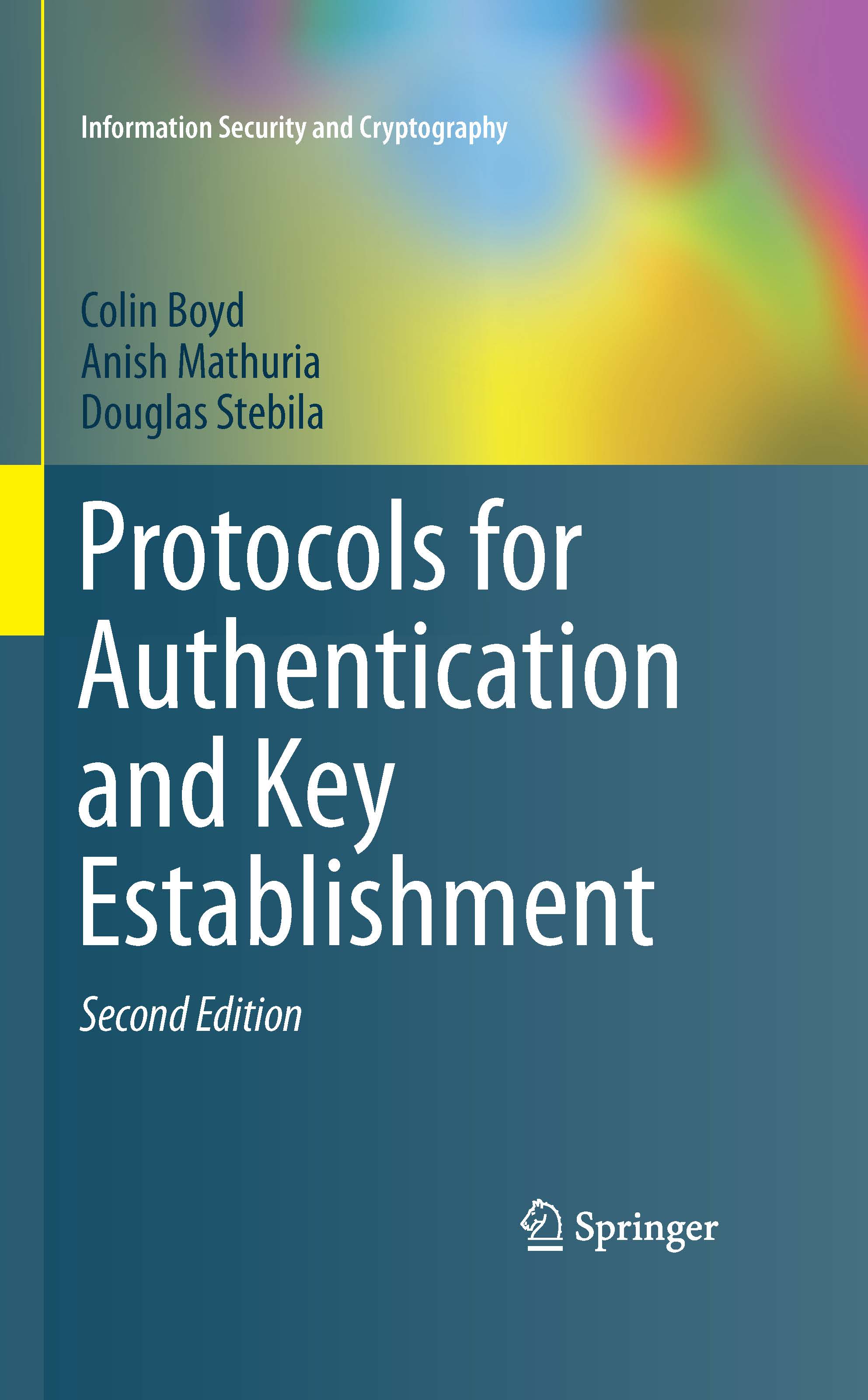
Douglas Stebila
Protocols for Authentication and Key Establishment, Second Edition
See a table on TLS attacks from the book!

Abstract
This book is the most comprehensive and integrated treatment of the protocols required for authentication and key establishment. In a clear, uniform presentation the authors classify most protocols in terms of their properties and resource requirements, and describe all the main attack types, so the reader can quickly evaluate protocols for particular applications.
In this edition the authors introduced new chapters and updated the text throughout in response to new developments and updated standards. The first chapter, an introduction to authentication and key establishment, provides the necessary background on cryptography, attack scenarios, and protocol goals. A new chapter, computational security models, describes computational models for key exchange and authentication and will help readers understand what a computational proof provides and how to compare the different computational models in use. In the subsequent chapters the authors explain protocols that use shared key cryptography, authentication and key transport using public key cryptography, key agreement protocols, the Transport Layer Security protocol, identity-based key agreement, password-based protocols, and group key establishment.
The book is a suitable graduate-level introduction, and a reference and overview for researchers and practitioners with 225 concrete protocols described. In the appendices the authors list and summarize the relevant standards, linking them to the main book text when appropriate, and they offer a short tutorial on how to build a key establishment protocol. The book also includes a list of protocols, a list of attacks, a summary of the notation used in the book, general and protocol indexes, and an extensive bibliography.
Reference
Colin Boyd, Anish Mathuria, Douglas Stebila. Protocols for Authentication and Key Establishment, Second Edition, Information Security and Cryptography. Springer, November 2019. © Springer.
Download
Media
- 2019-11-24: IEEE Cipher: Book Review – Protocols for Authentication and Key Establishment. Issue E52